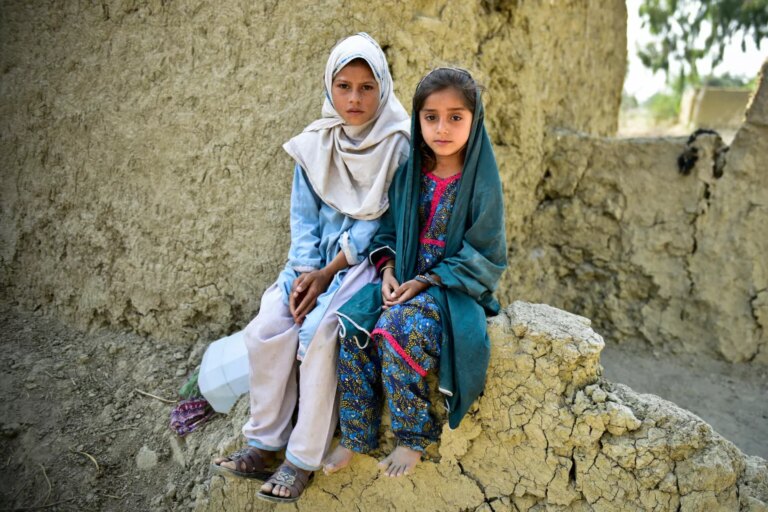Islamabad, April 22, 2024 – “Unseasonal torrential rains are currently hitting across Pakistan, once again putting the lives of children at risk.
“This is a reminder of the devastating tragedy of 2022, when 10 years’ worth of rain fell on villages in southern Sindh, killing 500 children. By December 2023, we saw how 9.6 million people in flood-affected areas were left malnourished and everything they had, including their schools, hopes and futures, washed away. children remain in need of humanitarian assistance.
“The devastating floods are an example of how climate change and pollution are impacting the health of children in Pakistan. With record temperatures, all children in Pakistan are suffering from excess body heat. Similarly, children are more likely to suffer from air pollution than adults, leading to life-threatening respiratory illnesses in children under five in Pakistan. Approximately 12% of deaths are caused by air pollution.
“Children in Pakistan are trapped year after year in a vicious cycle of drought and floods. From the moment of conception until adulthood, the health and development of a child’s brain, lungs and immune system are influenced by the environment. Children in Pakistan are at “extremely high risk” from the effects of the climate crisis. However, Pakistan carries the double burden of adapting to climate change while reducing global emissions.
“Despite what is at stake, we are failing to protect our environment. The mighty Indus River is a lifeline for Pakistan’s people and children, but now it is being threatened by climate change, It is at risk from neglect, abuse, pollution, overdevelopment, and the dumping of toxic waste.
“This Earth Day, we must redouble our efforts to ensure that no child in Pakistan ever again suffers from the effects of climate change, pollution and related disasters.
“Here’s how: To protect our planet, we need to reduce greenhouse gas emissions from coal and fossil fuels.
“I am a polluter. Every time I eat or travel, I add to global emissions. But the blame does not fall equally. According to Oxfam, 10% of the world’s richest people It is said that it is responsible for half of the greenhouse gas emissions.Governments must take collective responsibility for the pollution they cause. We can also do more to harness other resources such as sunlight.
“We must enact policies and laws to address climate change and its disproportionate impact on children and women. Protect children from toxic metals, chemicals, hazardous waste and air pollution. Protecting your health is of the utmost importance.
“We must invest in our children, which means more funding to tackle stunting and malnutrition and to build schools, health centres, toilets and hand pumps that can withstand floods and cyclones. However, support for children’s projects from the Climate Change Fund is only 2.4 percent. We urge world leaders to make COP30 a children’s COP to ensure a temperature limit of 1.5 degrees. We ask that you do this.
“If we don’t do this, many more children will be at risk of disease, hunger and death. To ensure that every child in Pakistan grows up in a safe and clean world. We need radical action today, and we owe it to the next generation to be the guardians of our future.”

